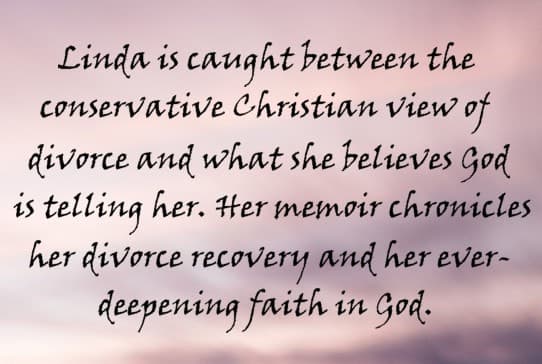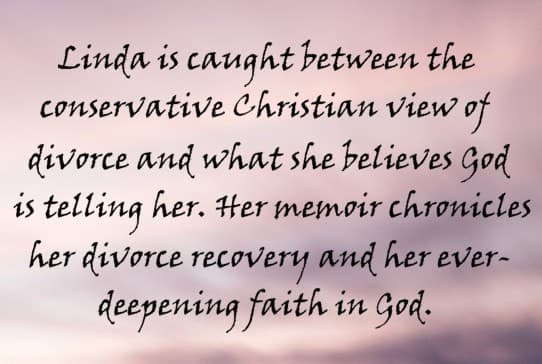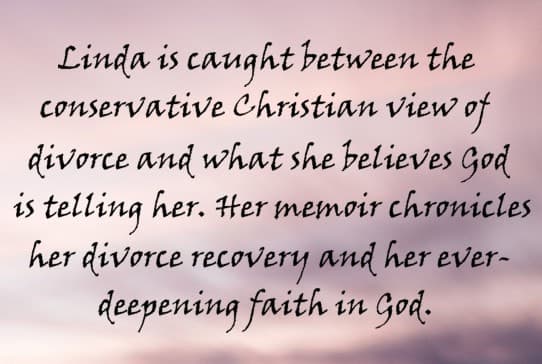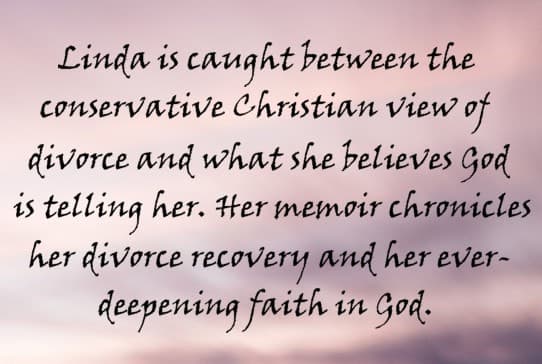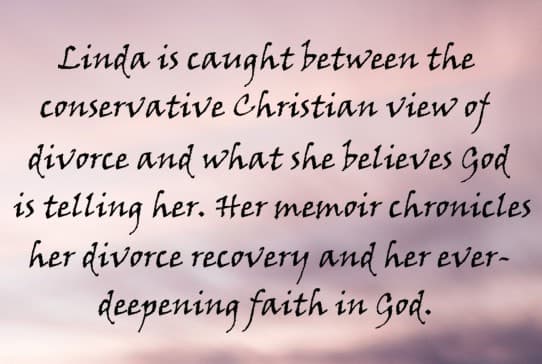Divorce Transition: The Importance of Saying Goodbye to Your Old Life
*I’m struggling to understand who I am — a weak sob sister, or a capable, confident woman. My counselor assures me I’m in transition.
My life is rapidly changing as I struggle to find firm footing. I have to deal with mail coming for Jim. I have a problem with my new health insurance. I have to open a new bank account and close our old joint one. I cancel department store credit cards I haven’t used for years. After the unsatisfactory talk with the pastor about forgiveness, I’m looking for a new church. I have to find a cheaper place to live. I need a job. I need to make new single friends. I need to find my mind.
After years of trying to fix my marriage, I’d felt God’s permission to leave. I’d been mentally preparing myself for a life after divorce, but, when it happened, I fell into a period of shock. What I didn’t understand was that I’d be entering the transition period between being newly divorced and eventual recovery. Whether or not you’ve made the decision to divorce, or your ex-spouse did, you will likely experience a time of transition similar to my own and to many, many others.
Divorce is one of the most difficult transitions a person can go through.
Divorce is one of the most difficult transitions a person can go through. Your sense of self is altered from being part of a union to being on your own in the world. If you have kids at home, you’ve now become a fractured family. Your financial security may be questionable. Your support system may change or even fail. You may even question your life’s purpose. Find comfort in the knowledge that you are not alone in this experience. Learning from others’ paths to normalcy and sanity may help you navigate your own transition with less trauma.
Much information exists these days about divorce recovery and moving forward which is what most of us want to achieve. But before that successfully happens, we need to recognize the transition period that occurs first. Elisabeth Kubler Ross and David Kessler identified five stages of grief which have strong similarities with the transition period: denial, anger, bargaining, depression, and acceptance. It’s important to note that these stages don’t necessarily occur in this order, and we can find ourselves cycling through them more than once.
I joked that “time wounds all heels.”
It’s been said that “time heals all wounds" (In the angry stage after my divorce, I joked that “time wounds all heels.”), but we need more than just time. On my journey to divorce recovery, I became friends with a woman who had been divorced for several years. As we became better acquainted, I discovered that the mere thought of being in the same room with her ex threw her into a panic. She’d allowed her divorce experience to taint her view of all men. It even damaged her relationship with her adult daughter. For her, time did very little to ease her pain; she was stuck in the anger stage.
I’m hoping that if you are in the transition period of divorce, the information I offer here can help move you through to hope and healing. I write from my own experience and that of several experts.
Denial
I’m obsessed with the fear that, by marrying Lady Friend, Jim will be making the biggest mistake of his life. I tell myself that maybe our marriage hadn’t been so bad. I send him an email, asking him to come back
Night after night I dream of Jim. Sometimes he’s returned, and I’m so glad. Other times, I beg him to leave Lady Friend and come back to me. I wake from these nightmares to the void on his side of the bed and howl with rage and loneliness.
You want your old life back.
You want your old life back and you hold onto the hope that your marriage will be restored. You hope that by convincing your spouse you can change, he will return. Or maybe you enlist friends or your religious community to try to convince him to return. You beg God to fix the mess you’re in. The hard lesson is that you can’t control the thoughts, desires, or actions of another person.
This was difficult for me to learn, but when I finally got it, I had to forgive myself for thinking I had the power to change my husband and the circumstances in which I found myself. I’d been begging God for years to fix my marriage. But I finally understood that, because He gives us free will, He wasn’t going to use my plans and intervene.
Anger
I drive down the freeway, pounding the steering wheel and calling him every bad name I can think of at the top of my lungs. I work like a madwoman in the yard, attacking the thick rhododendrons with my pruning shears even though I will soon have to leave this house. Whack! Whack! Whack!
Bam! Bam! Bam! I hit at the legs, trying to loosen the old glue and nails [so we can move the table into my new office]. Bam! I’m shouting, “Take that, Jim, you SOB!” “How does that feel, Jim?” “You’re a stinking turd, Jim!” Bam! Bam!
Express your anger in healthy ways.
The most important lesson about anger is that it’s good to express it in healthy ways and then let it go. Try to recognize what actions and emotions trigger your anger. Don’t be surprised when your anger pops up unexpectedly, but try accessing it in a safe place like the privacy of your own home or with safe people. Physical workouts can help, too. “Multiple studies demonstrate that daily exercise, especially a program that includes aerobics, can prevent or reduce feelings of depression. Now, there is new information available about the possible impact that exercise might have on feelings of anger.”1
If you can’t seem to get beyond your anger, consult with a counselor who can help you explore its core source. Hanging on to anger is akin to swallowing hot coals that eat at your soul and keep you from moving forward.
Bargaining
I wonder what truly separated us. Besides food, work, and religion, had there been something else I didn’t know? Jim has been hiding behind his religion, but what does it matter now? I chastise myself for wasting so much emotional energy on him. I need to let God, who knows the whole truth, deal with him.
Can't I skip it?
You’ve had enough! If only you could skip the rest of this transition and be whole and well again. But that’s not how our brain and emotions work. Now that you’re beyond the angry stage (well, mostly!), you feel the crushing reality of your divorce. You turn to bargaining, also called “The Time of Understanding.” You may spend much time and mental energy restructuring reality. “If only I had…” “If he hadn’t…” “God, why did you let this happen?” None of this bargaining works in the end, and it’s a little crazy isn’t it? But somehow, many of us have to go through this stage of recovery. I love this quote by Mary Pipher: “To wish that certain things didn’t happen is to wish that I am not myself."2
Depression
A friend tells me, "When your horse dies, get off." My marriage has died, but I’m finding that letting go is not so easy. Twenty-five years is a long time with someone. Someone else tells me that divorce is like removing ivy from a brick wall. Even though it’s cut off at the root, the tendrils still need to be pulled away, leaving the brick face raw. I have some painful pulling a way to do, and I’m already feeling raw.
Although most of the time I believe I had every right—maybe even an imperative—to leave Jim, part of me is still processing this issue. My counselor is fine letting me talk it out. Because I’m such an emotional mess, he puts me on Paxil, an antidepressant, and suggests I write a list of what I know about myself.
Depression can be scary!
Depression can be scary but is a natural result of the trauma of divorce and nothing to be ashamed of. You may take to your bed for long periods of time. You may lose interest in food, eating only enough to survive. Personally, I lost quite a bit of weight on what is jokingly called the “Divorce Diet.”
I was helped by joining a divorce recovery group and finding a counselor who aided me in regaining a healthy sense of myself. Force yourself to try something new that has sparked your interest in the past. I took up ballroom dancing and felt joy for the first time since the divorce. What can bring you joy?
Letting Go
I dreamt last night that Jim and I are still married. He informs me he’s fallen in love with someone else. I’m devastated, and I press him for details. He tells me it’s Pat, our friend.
“Pat? What a mismatch!” I say, sick at heart. “You have nothing in common.”
“Well,” he says, “She doesn’t fart. I can’t stand your farts.”
“You fart!” I say. “How could you have another lover and leave me?” But in mid-thought, I stop. “All right, go to her. She can have you! I want a husband who will love me and stick by me!”
I wake in my lovely bedroom with a big smile on my face. I’m cured! (Well, mostly.)
Oh, what a relief!
What a relief to let go! As the great philosopher, Adele, sings: “It’s hard but we must we’ve got to let it go and turn off the urge to know what could have been.”3 You no longer work to try to change things that cannot be changed. You understand that you were not faultless in your marriage … that no one is … but you can forgive yourself and can even entertain the possibility of forgiving your ex someday too. You feel more optimistic and begin to make plans for your future.
Acceptance
I awake with these words in my head: Accept the love that had been there.
You're able to look forward.
The key to transitions is being able to say goodbye to what was so recently your reality, or what you perceived to be the state of your marriage. In order to move forward, you accept what has happened and learn to live with it.
It helps to remember that endings mean that new beginnings follow. Now that you have experienced divorce, you will be changed. The transition process has been painful at times … akin to climbing a steep mountain. You’ve come through the wilderness and have found yourselves again … wiser and more self-aware. You’ve discovered new strength you didn’t know you had, and you begin to look ahead with hope. You understand you have much to say about what those new beginnings will be.
William Burges suggests we look at transitions as a natural part of life: “Endings and beginnings, emptiness and germination in between: that is the shape of the transition periods in our lives.” We may not recognize it as a pattern of life. Certainly, it usually happens on a less dramatic scale, but, if we can accept that transitions are a natural part of life, it will be easier to look forward to the new beginning we experience after divorce.”4
Faith played a big part in my divorce transition and recovery.
Even though I was frightened by my circumstances, I clung God’s promise that He would not fail me, much like David in the bible. The following two bible verses especially helped sustain me:
The Lord is my shepherd, I lack nothing. He makes me lie down in green pastures, he leads me beside quiet waters, he refreshes my soul. He guides me along the right paths for his name’s sake. Even though I walk through the darkest valley, I will fear no evil, for you are with me; your rod and your staff, they comfort me. You prepare a table before me in the presence of my enemies. You anoint my head with oil; my cup overflows. Surely your goodness and love will follow me all the days of my life, and I will dwell in the house of the Lord forever. Psalm 23 NIVFor I know the plans I have for you,” says the Lord. “Plans to prosper you and not to harm you, plans to give you hope and a future. Jer. 29:11 NIV
I don’t pretend to understand how God worked all this out, but I’m certain He had (and still has) plans for me, to prosper me and not to harm me, plans to give me a hope and a future. God has blessed me in ways I’d never allowed Him before I walked through the Refiner’s fire. When I was cut to the core, I discovered what is important in life and what are mere trappings. In the dark depths of the night, He cradled me in His arms. Now I feel His hand on my shoulder. I am secure in Him and nothing much shakes me these days. I know without a doubt that God is good all the time.
I hope and pray you emerge from your divorce transition strong and at peace, looking forward to the future.
Blessings,
*These quoted blocks of text are from diary excerpts in my recent memoir, God, the Devil, and Divorce: A Transformative Journey Out of Emotional and Spiritual Abuse. See more here.
- Schwartz, Allan N. “Exercise, Can It Reduce Angry Feelings?” https://www.mentalhelp.net/exercise/and-anger/
- Pipher, Mary. The Shelter of Each Other. Riverhead Books; 2nd ed, 2008
- “Can’t Be Together” Songwriters: Adele Laurie Blue Adkins / Ludwig Emil Tomas Goransson
- Burges, William. Transitions: Making Sense of Life’s Changes. Da Capo Lifelong Books, 2019



